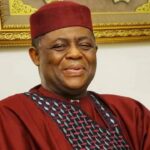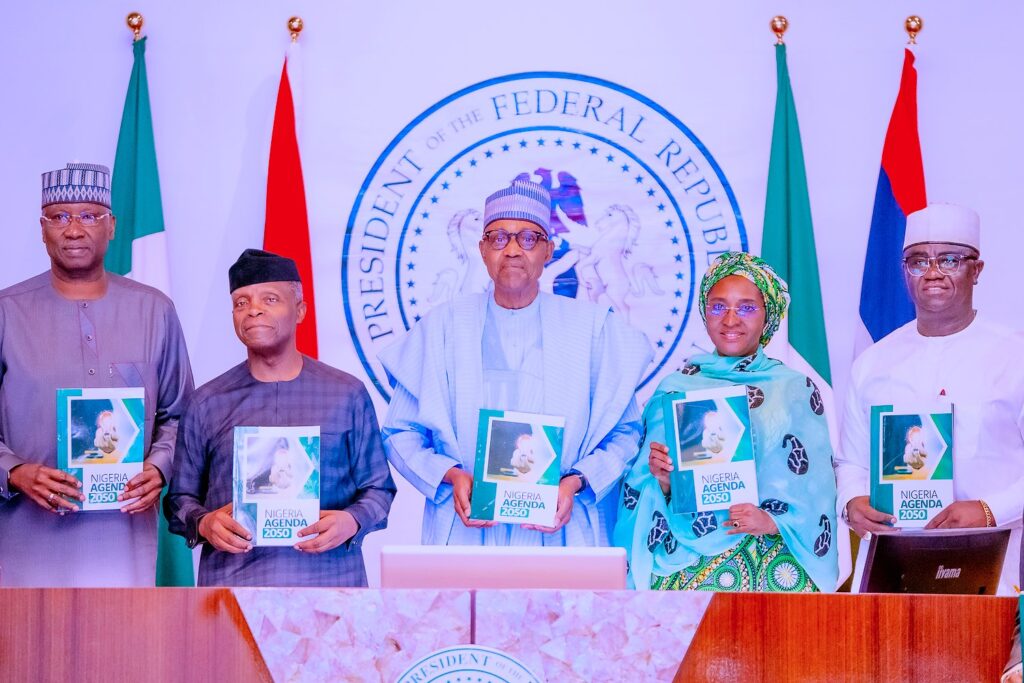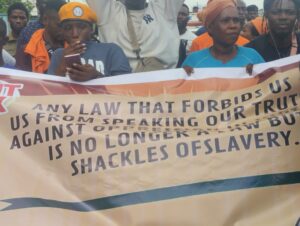By Blossom Chukwu
The National Economic Council (NEC) on February 14 2023, endorsed “Nigeria Agenda 2050,” designed to take the country through to be among Upper Middle-Income Countries and subsequently, to the status of High-Income countries.
“The Agenda 2050” was presented by the Ministry of Finance, Budget and National Planning to State Governors and other members of NEC, including Federal Ministers, at a meeting presided over by Vice President Professor Yemi Osinbajo, SAN. He observed that the plan captures a lot of the expectations for Nigeria in the future, and hopefully, targeting good implementation which is key, if effectively done.
Commenting on “The Agenda 2050”, the Minister of State for Budget and National Planning, Prince Clem Agba said the Federal Government has taken unprecedented steps in ensuring the operationalisation of the plan, especially with the inauguration of the Steering Committee of the National Development Plan.
On 9th September 2020, the President inaugurated the National Steering Committee (NSC) for the preparation of the Medium-Term National Development Plan (MTNDP), 2021 – 2025. Highlights of “The Nigeria Agenda 2050” as presented to NEC states that:
*Nigeria Agenda 2050 is formulated against the backdrop of several subsisting development challenges in the country.
*These challenges include low, fragile, and non-inclusive economic growth; high population growth rate, pervasive insecurity, limited diversification, macro-economic and social instability, low productivity and high import dependence.
“Nigeria Agenda 2050” is a perspective plan also designed to transform the country into an “Upper-Middle Income Country”, with significant improvement in per capita income. The plan aims to fully engage all resources, reduce poverty, and achieve social and economic stability. It also targets developing a mechanism for achieving a sustainable environment consistent with global concerns about climate change.
The plan therefore presents the road map for accelerated, sustained and broad-based growth, and provides broad frameworks for reducing unemployment, poverty, inequality, and human deprivation. This requires:
- Significant improvement in the country’s per capita GDP which will be powered by rapid and sustained economic growth.
- Nigeria’s long-term ambition, which is to improve its per capita GDP from about US$2,084.05 in 2020 to US$6,223.23 in 2030 and US$33,328.02 in 2050, with rapid and sustained economic growth, job creation and poverty reduction.
- The Nigeria Agenda 2050 projects annual average real GDP growth of 7.0 percent.
- The real growth rate of the GDP of the first medium-term NDP 2021-2025 on average will be 4.65 percent and this will increase to 8.01 percent in the second NDP; subsequently, it is expected to increase to 8.43 percent in the third.
- Consequently, the number of full time jobs created will be roughly 165 million during the Agenda period to spur poverty reduction.
- The number of people in poverty will decline from the roughly 83 million in 2020 to about 47.8 million in 2025 and to 2.1 million by 2050, thus taking a significant segment of the population out of poverty.
Bearing these facts in mind, President Muhammadu Buhari, on Wednesday May 3, fully launched “The Nigeria Agenda 2050”; the plan aimed at increasing real GDP growth by seven per cent, creating 165 million new jobs, and reducing the number of Nigerians living in poverty to 2.1 million in 2050, from the 83 million estimated in 2020.
The launch took place shortly before the commencement of the week’s Federal Executive Council meeting at the Council Chambers of the Presidential Villa, Abuja. At the launch, the President said, “This vision is a product of a dynamic knowledge based economy to provide sustainable development by 2050. The goal is to increase per capita income of Nigeria to $33,328 per annum to be placed amongst the world’s top economies by 2050. I hope this document will prove useful for subsequent administrations.”
President Muhammadu Buhari has emphasised the need for subsequent administrations to continue with “The Nigeria Agenda 2050”, since its over-arching goal is to take Nigeria to an Upper Middle-Income Country and subsequently to the status of a High-Income country by 2050.








More Stories
Ozigbo rejects Anambra APC guber primary, calls it a theft
Ndume tackles Tinubu over massive borrowings, lists ‘spurious’ items
Police teargas protesters in Rivers, Abuja